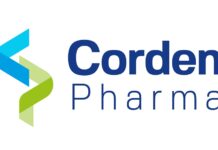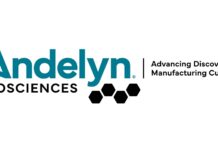Aerpio Therapeutics today announced that it hosted the scientific symposium, Targeting the Tie2 Pathway for Novel Therapeutics, in Cambridge, MA, on August 19-20, 2012. The symposium brought together researchers from around the world who are leading the scientific and clinical exploration of Tie2 as a new means of addressing diseases with unmet needs. The event focused on the approaches used to manipulate the Tie2 pathway across indications, drawing upon both known and unexpected areas of clinical translation, such as cancer, sepsis, diabetes and ophthalmic diseases.
“The Tie2 pathway has long been on the radar of the academic world and the science behind it is well known. However, the clinical science is just emerging and there is great discussion of how to best approach this pathway and transform the basic science for the benefit of patients,” said Kari Alitalo, MD, PhD, University of Helsinki. “By bringing together those that are conducting translational research on the Tie2 pathway in such diverse indications, we were able to foster new ideas and insight for ongoing research.”
The symposium program featured 11 presentations exploring the Tie2 pathway as a target in three clinical areas: cancer, vascular stabilization (acute disease) and vascular maintenance (chronic disease). A corresponding panel discussion followed each of the three sessions.
Presenters for the event were as follows:
Kari Alitalo, MD, PhD, University of Helsinki
Hellmut Augustin, DVM, PhD, Heidelberg University
Michael Brownlee, MD, Albert Einstein College of Medicine
Peter Campochiaro, MD, Johns Hopkins School of Medicine
Christopher Daly, PhD, Regeneron
Dan Dumont, PhD, University of Toronto
Donald McDonald, MD, PhD, University of California, San Francisco
Jonathan Oliner, MD, PhD, Amgen
Samir Parikh, MD, Harvard Medical School
Susan Quaggin, MD, Lunenfeld Research Institute
Dietmar Vestweber, PhD, Max Planck Institute
“Aerpio was proud to host this event that allowed members of academia and industry to share their research in such a collaborative setting, and we thank the participants for their contributions,” said Kevin Peters, MD, Chief Scientific Officer of Aerpio. “We came away from this conference with greater understanding of the Tie2 pathway, which will prove valuable to Aerpio as we continue to advance AKB-9778, our first-in-class Tie2 activator in clinical development for diabetic macular edema.”
About AKB-9778
AKB-9778 works by inhibiting the Human Protein Tyrosine Phosphatase ß (HPTPß) enzyme, which acts as a negative regulator of the Tie-2 receptor. By inhibiting this negative regulator, Tie-2 signaling is restored, overcoming the effects of the Ang2-induced vascular destabilization. Tie-2 activators have potential utility in a range of important clinical indications, but Aerpio is currently focusing development of its lead candidate, AKB-9778, in diabetic macular edema. In a Phase 1 healthy volunteer study, AKB-9778 was well tolerated through the predicted efficacious dose range, with evidence of on-target pharmacology. A Phase 1b/2a study to explore the safety and efficacy of AKB-9778 in patients with diabetic macular edema is expected to begin by the end of 2012.
About Aerpio Therapeutics
Aerpio Therapeutics, Inc. is a clinical-stage biopharmaceutical company focused on advancing innovative therapies for the treatment of diabetic eye disease and inflammatory bowel disease. Aerpio is a leader in the development of small molecule drugs based on Tie2 activation and the stabilization of Hypoxia-inducible Factor 1a (HIF-1a). The Company’s lead program, AKB-9778, is a first-in-class stabilizer of the Tie2 pathway and is in clinical development for diabetic macular edema. AKB-4924, a HIF-1a stabilizer, is in late preclinical development for inflammatory bowel disease. More information is available at www.aerpio.com.




















